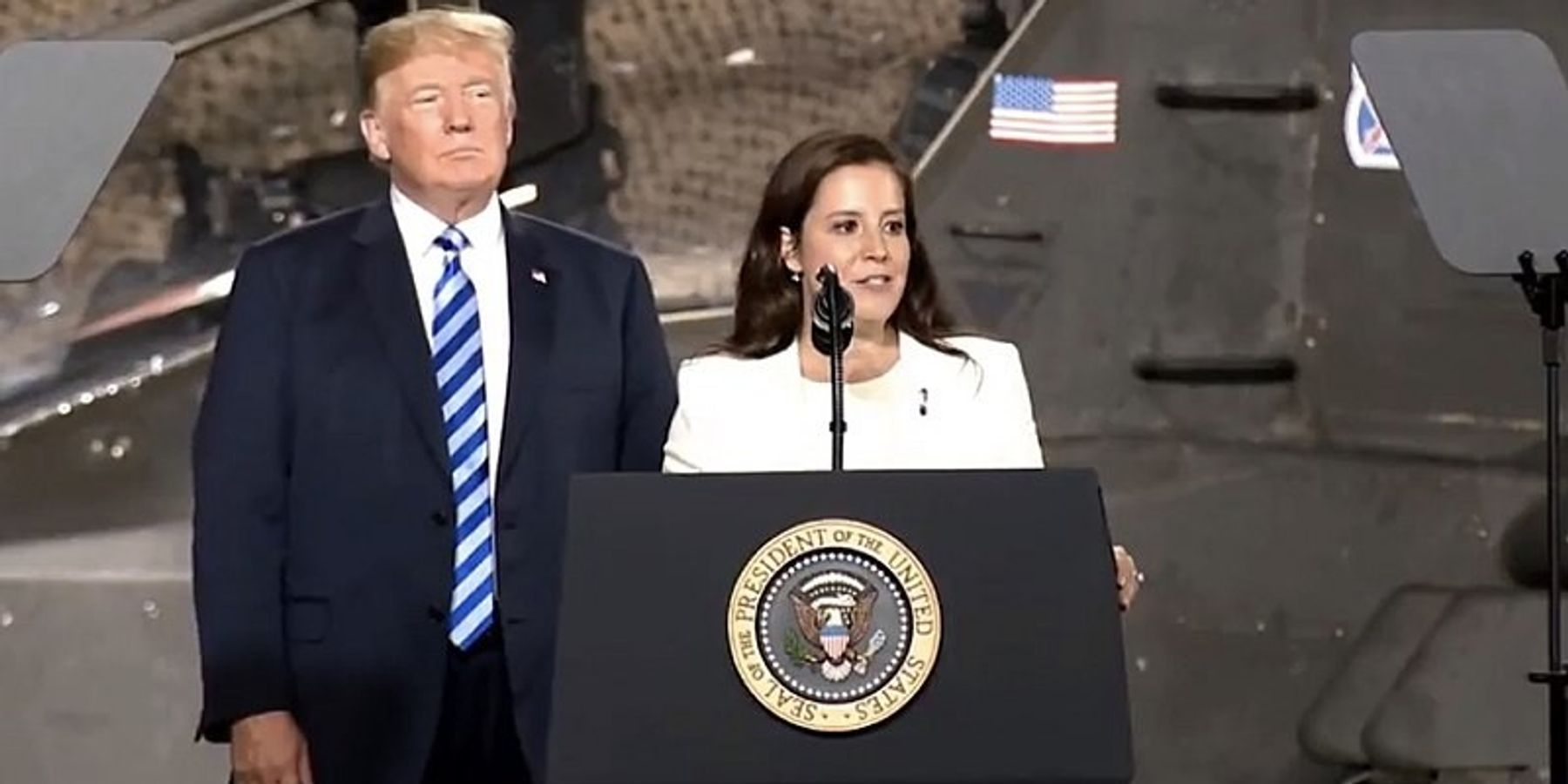President-elect Trump has named New York GOP Rep. Elise Stefanik as his choice for ambassador to the United Nations.
The nomination is one of the first major appointments Trump has made since winning the election last week. Stefanik has been a staunch Trump loyalist going back to his first term in office, and she has been one of the most vocal supporters of the war in Gaza over the last year.
Different factions in the Republican Party have been competing over the direction of Trump’s foreign policy, and the choice of Stefanik appears to be a clear win for hardline hawks. Putting Stefanik at the UN seems to be Trump’s signal to the world that he doesn’t necessarily care how isolated the U.S. and Israel have become because of the wars in Gaza and Lebanon.
First elected in 2014, Rep. Stefanik, 40, has been considered a rising star in the Republican Party. Before being elected to Congress, she worked at the hardline Foundation for Defense of Democracies think tank, and she worked at the extremely hawkish Foreign Policy Initiative that was co-founded by Bill Kristol and Robert Kagan.
Then she gained national notice when she defended Trump during his first impeachment, after which she became one of his most reliable supporters. Trump’s decision to send her to the UN is clearly a reward for her years of loyalty. Stefanik has no background in international relations or diplomacy that would prepare her for representing the United States at the international body, but then the point of sending her is probably to pick fights with other states rather than trying to resolve them.
Republican presidents have appointed hostile ambassadors to the United Nations before. Reagan gave the job to Jeane Kirkpatrick, George W. Bush chose John Bolton (but had to settle for making him a recess appointment), and Trump appointed Nikki Haley in his first term. If confirmed, Stefanik would likely follow her Republican predecessors in their dislike for the institution.
Unlike Haley, however, Stefanik is not going to try running her own parallel foreign policy from New York. Stefanik will face few hurdles in being confirmed by the Senate. Republicans will control the chamber, and she is unlikely to face the sort of organized opposition that Bolton faced almost twenty years ago.
As a member of Congress, Stefanik has been a harsh critic of the United Nations, smearing the institution as antisemitic whenever it has afforded Palestinians an opportunity to express their grievances or to bring pressure to bear against Israel in the General Assembly. She has denounced the Biden administration for its supposed failure to combat antisemitism at the UN.
Stefanik was a leader of the campaign to smear antiwar college campus protesters as antisemitic, and she played a role in pressuring the presidents of Ivy League universities to crack down on the protests at their schools. She has also supported the cutoff of funding for the United Nations Relief and Works Agency (UNRWA), the agency that is essential to providing humanitarian assistance to Palestinian civilians in Gaza.
Stefanik has distinguished herself as one of the most extremely anti-Palestinian members of Congress.
Like Trump, Stefanik has been an opponent of the nuclear deal with Iran from its inception. She recently joined her Republican leadership colleagues in calling for a “return to a maximum pressure campaign against Iran.” She repeated the call for maximum pressure again this week. Ambassadors to the U.N. typically have little influence in shaping policy, but the choice of Stefanik is consistent with reporting that Trump plans to pursue a more aggressive Iran policy in the new term.
The Stefanik nomination puts a damper on the news that Mike Pompeo and Nikki Haley won’t be part of the new administration. Trump may not be bringing back all of his old appointees, but he continues to surround himself with hardliners. To the extent that personnel is policy, that bodes ill for the new administration’s foreign policy.















